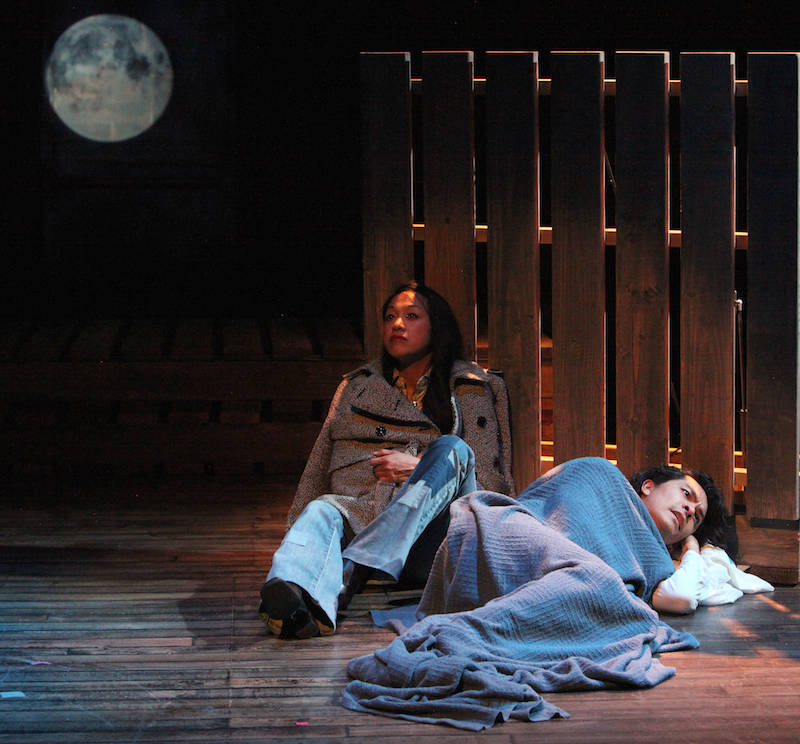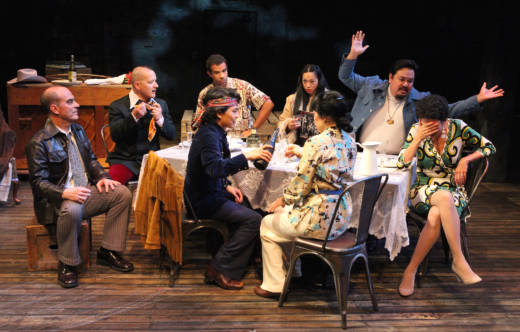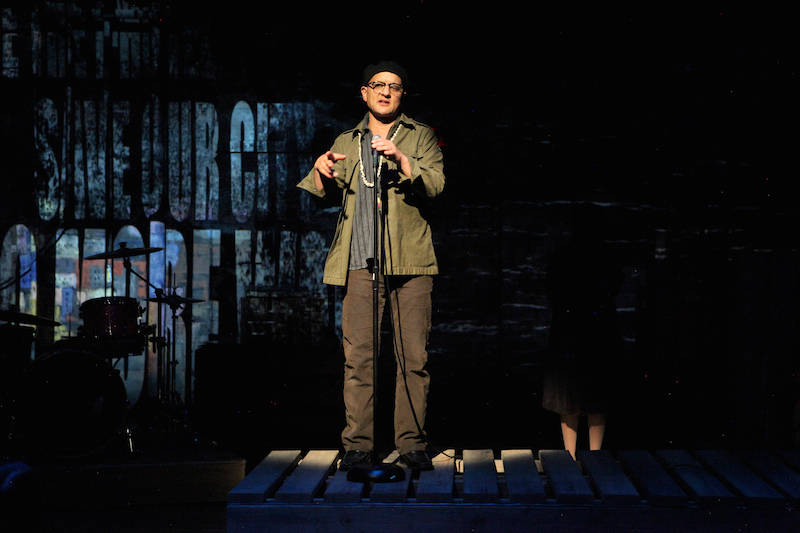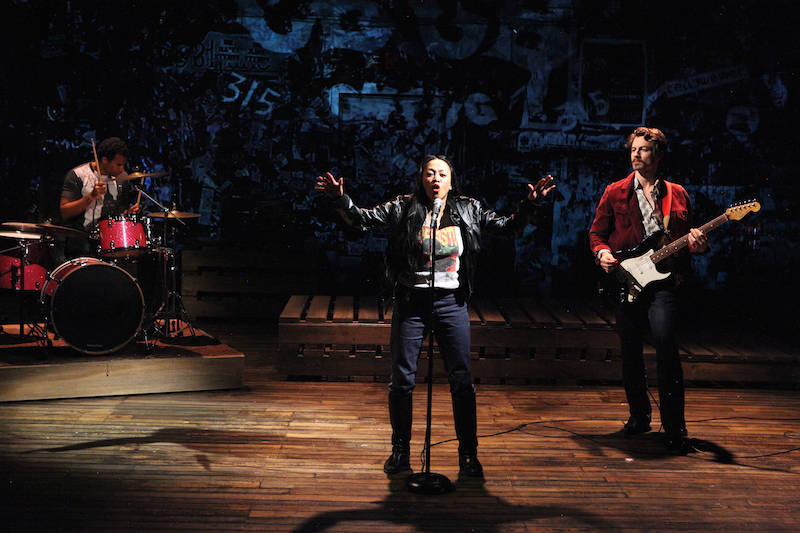Jessica Hagedorn is a bona fide Filipina-American superstar, having come of age in a San Francisco where poets were prophets, rock stars were seers, and a bohemian counterculture ruled the public discourse.
Mentored by Kenneth Rexroth, befriended by Ntozake Shange, and the driving force behind experimental music and poetry ensemble the West Coast Gangster Choir, Hagedorn published her first novel Dogeaters in 1990. It won the American Book Award in 1990, was first adapted into play form in 1998, and was recently produced in 2016 at Magic Theatre. Her critically acclaimed 1996 novel Gangster of Love, set in the San Francisco of the ’70s, has inspired numerous Bay Area-based Filipina artists, including theatre-maker Michelle Talgarow and hip-hop MC Krishtine de Leon, a.k.a. Rocky Rivera, whose stage name pays tribute to Hagedorn’s feisty heroine.
Now, Hagedorn’s post-Summer of Love coming-of-age story is having its own Magic Theatre debut, directed by Loretta Greco, and appropriately starring triple-threat performer/poet/musician Golda Sargento as Rocky Rivera.
What with the San Francisco setting, the continued support of Magic Theatre, a solid core of actors (many of whom have cut their teeth at Bindlestiff Studio), a performance incubator dedicated to Filipino-American voices, and a Gerbode-Hewlett playwrights commission, the conditions surrounding this world premiere production couldn’t be more auspicious. So it’s a bit of a letdown to be confronted with a piece that, for all of its pedigree and strength of source material, can’t sustain its own promise.

The play opens with the teenage Rocky, her older brother Voltaire (Jed Parsario), and her mercurial mother Milagros (Sarah Nina Hayon) sailing into San Francisco on the “Star of the Sea,” following the path of Milagros’ sister Fely (Lisa Hori-Garcia), who’d come over from the Philippines some years before. They settle somewhat reluctantly into the “redlined” Western Addition, where it’s impossible to get a taxi to come and pick you up, and where the two children gradually become exposed to and participants in the San Francisco underground, from poetry readings and political rallies in North Beach, gay clubs in the Castro, and the rock ‘n’ roll remnants of the Haight.




